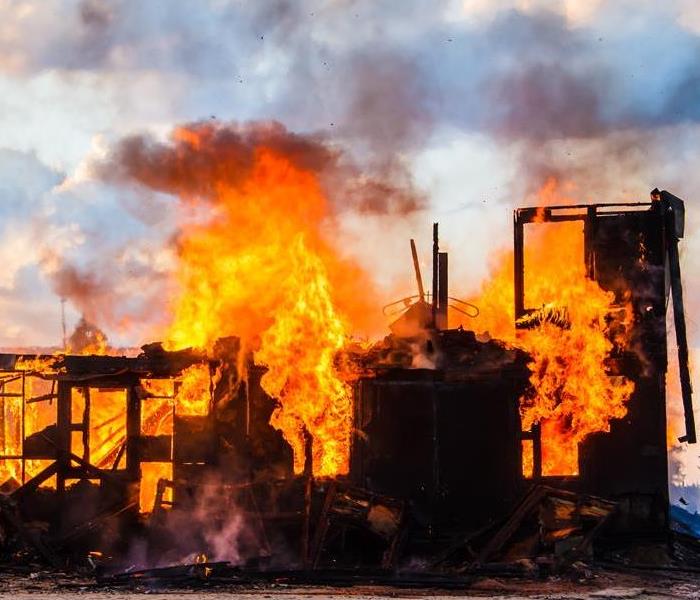How Do I Keep My Building Secure After a Fire? A Guide to Protecting Your Property Post-Fire
8/9/2023 (Permalink)
Experiencing a fire in your building can be a devastating and traumatic event. In the aftermath, it's crucial to ensure that your building remains secure and safe, even during the restoration process. In this blog post, we'll discuss how to keep your building secure after a fire and provide helpful tips for protecting your property in the long run.
Secure Your Building Immediately
After a fire, it's essential to secure your building immediately to prevent further damage or theft. Contact your insurance company and a professional fire damage restoration company to board up any openings, such as doors and windows, and to minimize exposure to the elements.
Installing temporary fencing around your building can provide additional security and restrict access to your property. This can help to keep out curious onlookers or opportunistic thieves who may try to take advantage of the damage to your building.
Identify and Document All Damages
It's crucial to document all damages and losses in detail for insurance and legal purposes. Take photos and videos of the damage, and keep a list of all damaged property, including furniture, electronics, and fixtures. If possible, remove and secure any valuable items from your building. This may include jewelry, artwork, and important documents. Store them in a safe, secure location until needed.
Monitor Your Building
Consider installing surveillance cameras and security systems to help monitor your building 24/7. This can help to deter any intruders or vandals and allow you to monitor any activities in real-time. Once your building is secure, it's essential to continue with maintenance and repairs to prevent further damage or loss. This may include routine cleaning, HVAC maintenance, and structural repairs.
Educate Your Staff and Tenants
If your building houses multiple tenants or has staff, it's crucial to educate them on fire safety and emergency protocols. This can help to prevent future fires and minimize damage if a fire does occur. Evaluate your existing fire safety measures and make any necessary improvements or upgrades. This may involve installing or upgrading smoke detectors, fire extinguishers, and sprinkler systems. It's important to follow local fire safety regulations and guidelines to ensure your building is up to code
Schedule regular inspections with a qualified fire safety professional to ensure that your building remains compliant with fire safety standards. These inspections should cover all fire safety equipment, including alarms, extinguishers, and emergency lighting. Implementing a proactive approach to fire safety can help prevent future incidents.
Enhance Building Security Systems
Evaluate your building's security systems and consider enhancing them to provide better protection. This may involve installing access control systems, security cameras, and alarm systems. Hire a reputable security company to customize a security plan that meets the unique needs of your building.
Create a comprehensive emergency response plan that outlines the appropriate steps to take in case of a fire or other emergencies. Educate your staff and tenants on the plan and conduct regular drills to ensure everyone is familiar with the procedures. Include evacuation routes, designated meeting points, and instructions for reporting emergencies.
Communicate with Insurers and Authorities
Make sure to keep your insurance company informed about any security measures you implement following a fire. This can help ensure that your building remains adequately covered in case of future incidents. Additionally, communicate with local authorities and fire departments to maintain a positive relationship and access their expertise.
Building security is an ongoing effort, so it's crucial to review and update your security measures regularly. Stay up to date with the latest technologies, best practices, and regulations in fire safety and building security. Conduct periodic assessments to identify potential vulnerabilities and address them promptly.
Experiencing a fire in your building can be traumatic, but taking steps to secure your property and minimize further damage can help you move forward. With careful planning and attention to detail, you can rebuild and restore your property to its former glory.






 24/7 Emergency Service
24/7 Emergency Service
